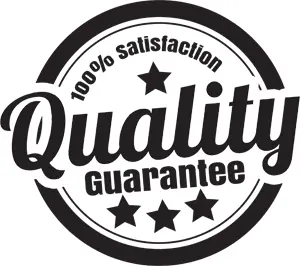The Definitive Guide To Towing A Truck Safely And Efficiently
Towing a truck can be an intimidating task, especially if you’ve never done it before. With so much heavy machinery involved and the potential for serious damage to your vehicle, it’s no wonder why some people are skeptical about taking on such a task. But don’t worry; with the right preparation and know-how, you can tow a truck safely and efficiently. In this blog post, we will provide you with a definitive guide to towing a truck safely and efficiently. From selecting the right tow truck for the job to understanding best practices for traversing tight corners, this post will give you all the information you need to get started.
Different Types of Trailers
There are a variety of trailers that can be towed behind a truck, each with its own set of advantages and disadvantages. The most common types of trailers are flatbeds, fifth wheels, goosenecks, and tag-alongs.
Flatbed trailers are the simplest and most versatile type of trailer. They can be used to transport just about anything, from construction materials to vehicles. Fifth wheels are designed specifically for towing RVs and other large vehicles. Goosenecks are ideal for hauling heavy loads, such as livestock or agricultural equipment. Tag-along trailers are the smallest and lightest type of trailer, making them easy to maneuver and park.
How to Choose the Right Trailer
There are a few factors you need to take into account when choosing the right trailer for your truck. The first is the weight of your vehicle. You need to make sure the trailer you choose can handle the weight of your truck. The second is the length of your vehicle. You need to make sure the trailer you choose is long enough to accommodate your truck. The third is the height of your vehicle. You need to make sure the trailer you choose is high enough to clear any obstacles on the road. Lastly, you need to take into account the width of your vehicle. You need to make sure the trailer you choose is wide enough to accommodate your truck.
How to Load a Trailer
Assuming you have a trailer and truck that are compatible, here are the steps to take to load a trailer:
1. Park the truck where you will be able to back up to the trailer at a slight angle. This will allow you to line up the coupler of the trailer with the hitch ball of the truck.
2. Once they are lined up, lower the jack on the tongue of the trailer so that it can rest on the hitch ball
3. Raise the coupler until it is high enough to latch onto the hitch ball. Make sure it is secure by tugging on it from different angles.
4. Inspect all of your safety chains and cross them under the coupler, then clip them onto the side of your hitch receiver. This step is important in case your coupler comes undone from the hitch ball while you are driving.
5. Disconnect your electric brake controller if you have one installed, then plug in your trailer’s wiring harness to your truck’s 7-way connector. If everything is hooked up correctly, your taillights should illuminate.
6. If your trailer has surge brakes, make sure there is no slack in your brake line by gently pulling forward on your trailer while someone else watches to see if the brakes engage properly. If your trailer has electric brakes, test them by depressing the brake pedal while someone else watches to see if the brakes engage properly.
7. Secure your load with straps or ropes so that it does not shift while driving.
8. Before you take off, double check all of your connections to make sure they are secure and functioning properly.
9. When you are ready, slowly back up your truck until the trailer is firmly attached and engaged with the hitch ball.
10. You are now ready to hit the road!
Towing a Trailer Safely
When towing a trailer, there are a few safety tips to keep in mind in order to ensure a safe and efficient trip. First, make sure the trailer is properly hitched to the truck. Second, be aware of the extra weight and length of the trailer when making turns or stopping. Lastly, always use proper signals when changing lanes or turning. By following these simple tips, you can tow a trailer safely and efficiently.
Tips for Driving with a Trailer
When towing a trailer, always remember to drive slowly and carefully. Take turns slowly and avoid sudden braking or acceleration. Also, be mindful of other vehicles on the road and give yourself plenty of space to maneuver.
When backing up, it is helpful to have someone guide you from outside the vehicle. If you don’t have someone to help, be sure to go slowly and use your mirrors to guide you. It is also important to use proper lighting when driving with a trailer so that other drivers can see you.
Be sure to inspect your trailer before each trip and properly maintain it. This includes checking the tires, brakes, lights, and coupling device. It is also important to test the trailer’s electrical system before each use. By taking these precautions, you can help ensure a safe and successful trip.
Unloading a Trailer
When you reach your destination, it’s time to unload the trailer. Here’s how to do it safely and efficiently:
1. Park the tow vehicle and trailer on level ground.
2. Put the transmission in park and set the parking brake.
3. Release the trailer’s brakes.
4. Disconnect the trailer from the tow vehicle.
5. Lower the trailer’s tongue so that it rests on the ground.
6. Remove any chocks or blocks from under the wheels.
7. Pull forward until the trailer is clear of the hitch ball.
8. Securely fasten the trailer to the ground or an anchor point.
9. Unload the cargo from the trailer, taking care to use proper lifting techniques and equipment.
10. Clean up any spilled cargo or debris in the area.
11. Check that all tie-down straps and devices are removed.
12. Re-hitch the trailer to the tow vehicle if needed, ensuring everything is connected securely and properly.
13. Lift the trailer tongue onto the hitch ball.
14. Reconnect the safety chains and electrical wiring, making sure everything is connected properly.
15. Put the transmission in park and set the parking brake for both vehicles.
16. Re-apply the trailer brakes before driving away.
17. Double-check to make sure everything is in order and that the trailer is securely attached before driving away.
Follow these steps to safely and efficiently unload your trailer. Doing so will ensure that the cargo is handled properly, your safety is not compromised, and your tow vehicle and trailer remain in good condition.


